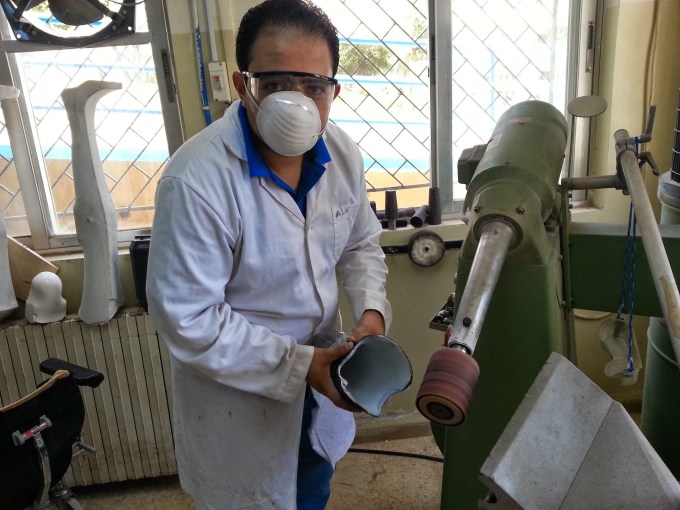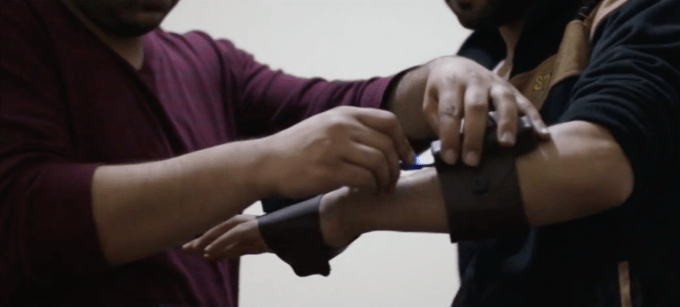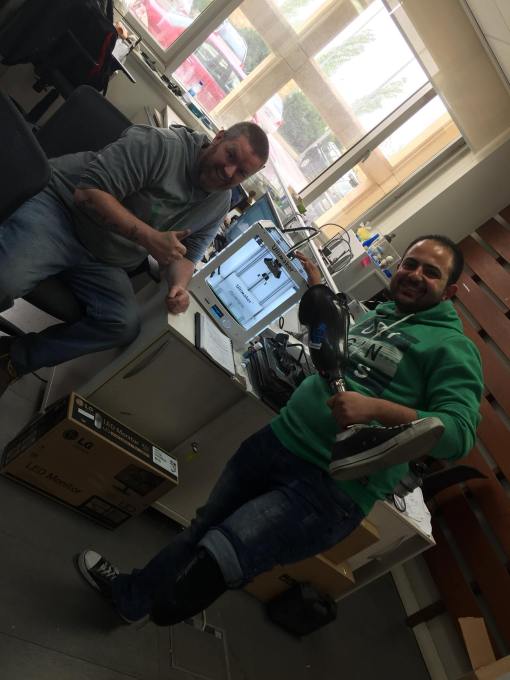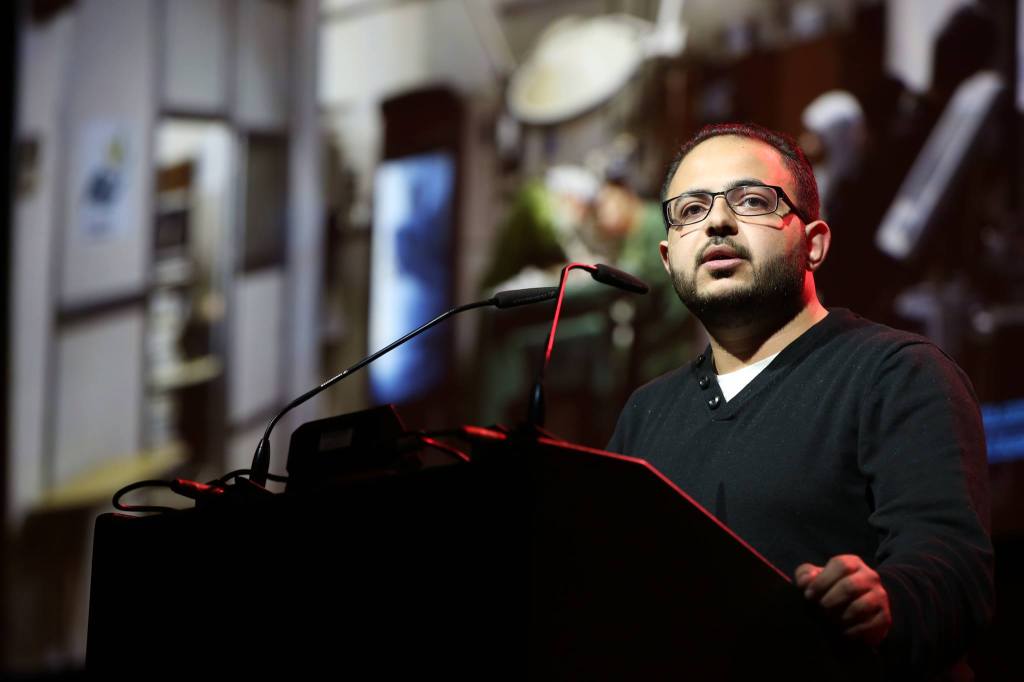Farid Y. Farid
More posts from Farid Y. Farid
Asem Hasna, 22, heard dead silence for five minutes after a shell blew his left leg off in a small town southwest of Damascus in April 2013.
A mathematics student turned volunteer paramedic Hasna had opened the ambulance door after loading injured rebels from the battlefront in Khan El Shih when Bashar Al Assad’s Syrian military forces had shelled the area.
“The explosion was so loud that I didn’t even realise that my leg was no longer there. It all happened so quickly” Hasna told TechCrunch, on the sidelines of the re:publica tech conference in Berlin.
Hasna was captivated with the democratic groundswell that was building in Arab capitals in 2011. He had been going to demonstrations against Al Assad’s regime throughout the year facing tear gas and bullets.

Yet, as the situation worsened into a full blown civil war that has now claimed over 250,000 lives and displaced over 4 million, he decided to leave Qatana, his hometown in rural Damascus, in February 2013.
Police raided his home searching for him and detained his father instead, who ironically worked as a translator in the defense ministry. He was released weeks later after spending time in the notorious Adra prison.
In Khan El Shih, the town that borders Israel, Hasna worked in a makeshift hospital that was housed in a underground cooler part of a vegetable warehouse.
“I saw the stuff of nightmares there. Lots of corpses and severe injuries, we treated everyone even soldiers from the regime. We didn’t discriminate we had to save as many lives as we could” he added.
He was in and out of consciousness as his severed leg haemorrhaged badly and his hospital colleagues immediately sent him along with 13 other fighters to Jordan for treatment. Smuggled in a truck and dodging bullets and checkpoints in the dead of night Hasna barely survived.
“There was no water or food. We just wanted to get to Amman. Two of our group unfortunately died on the way as their injuries were so severe”.
After treacherously making it across the border, he bounced around from hospital to hospital undergoing five major operations on his amputated leg.
During his rehabilitation he was part of a joint State Department and Red Cross program aimed at training Syrians to be prosthetic technicians to develop new limbs for other war survivors. He saw a 3D printer for the first time and was hooked.
“It was weird. I knew how a 2D printer worked but I wanted to find out more about 3D printers and learnt voraciously on the web using open source software” Hasna pointed out. “You just have to practice and use your own hands”.
He began working with a 3D printing startup in Amman called 3D MENA and learnt how to program a microchip in three days mastering the technology of bionic prosthetics using Arduino.
Hasna’s attention turned to finding low cost solutions for prosthetics that were far from perfect in their adjustment for amputees.
He developed an echolocation haptic device for his friend Ahmed Orabi, who lost his sight in sniper fire in Syria, allowing him to sense the depth of objects when walking by feeling vibrations.

Hasna also printed a durable rubber part between the ankle and his heel that helped stabilise his prosthetic leg all for around $2.
“There’s practical applications using 3D printers for low cost solutions” he added.
Muhammad Radwan, an Egyptian American technology innovator who invited Hasna as part of the Global Innovation Gathering at re:publica this year agrees telling TechCrunch, “there’s a whole movement in the region now with people realising that the manufacturing process is becoming decentralised and if you want to make something you can now do it yourself”
With the success he found in Jordan’s supportive startup community, Hasna also was facing hardships after two years living in Amman as authorities started cracking down on Syrians working in the heavily stretched country that has hosted over 1 million asylum seekers.
He boldly decided with his injured room-mates in September 2015 to embark on the arduous trip to Germany in order to seek asylum.

They flew to Istanbul then rode down to Izmir, found a smuggler, paid over $1000 each and embarked at dusk on a packed inflatable 6m boat to the island of Lesbos in Greece.
“Between you and death is a wave” Hasna mournfully recounted. “It was a trip full of anguish”.
He made his way along with his other disabled friends from Greece to Macedonia then Croatia, Hungary, Austria and finally Germany within a week, all on prosthetic leg.
As he waits for his German residency papers to be accepted, Hasna holds programming sessions for kids in the camp where he now lives in Berlin using Arduino and imparting some of his newly acquired knowledge of digital fabrication in prosthesis.
He’s also honing his skills for Refugee Open Ware, an organization he worked with in Jordan, with laser cutters and milling machines.
“My world opened up with open source technology. It changed my life for the better and I want to pass that on to the next generation” he said.































Comment